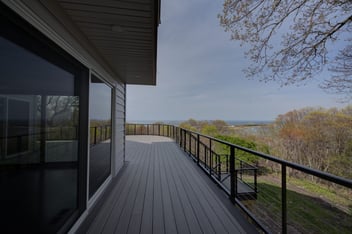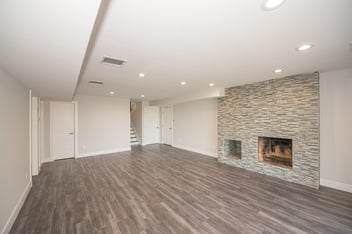3 Min Read
15 DIY tips for winterizing your Long Island home
What is Winterizing?
Whether you live on the Northshore in Port Jefferson or Southshore in Remsenberg, Long Islanders need to prepare their home for the cold weather ahead.
Winterizing refers to securing or preparing unused home essentials to withstand or survive the harsh impacts of winter weather. These 15 DIY Tips will not only persevere your home against snow and freezing temperatures but your purse strings too.
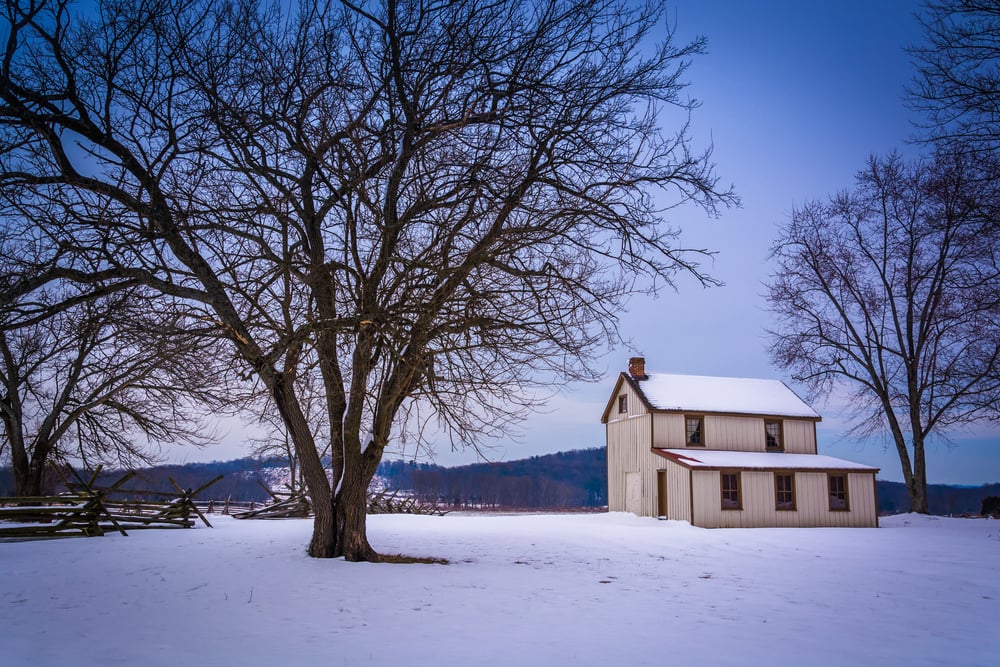
Tips to prepare the INSIDE of your Long Island home
-
Have your furnace inspected:
Since your heating system will probably be running constantly throughout the winter, you should have it inspected annually to help it run efficiently and prevent carbon Monoxide. Also, remember to change out your HVAC filters every month. Not sure who to call, try the team at ARB Mechanical.
-
Test your detectors:
Residential fires are more common in winter, so it is important that all of your smoke detectors and carbon monoxide detectors are working.
-
Inspect the insulation in your attic and crawlspaces:
Warm air rises and leaves the house through the roof, so you should focus on insulation in your ceilings. While insulating crawlspaces will help keep your floors warm.
-
Apply weather stripping:
Add weather stripping to exterior doors and caulk window gaps. Make sure all windows are locked to keep out as much cold air as possible.
-
Schedule a fireplace inspection:
If you plan to use it, schedule a Certified Chimney Inspector to perform a proper sweep and clear debris. Make sure that your damper opens, closes, and seals tightly.

-
Insulate pipes:
If you plan on leaving your home for the cold-weather season, pay special attention to pipes located in attics, crawl spaces, basements, and near the outer wall. When News 12 Long Island forecast calls for unusually cold temperatures, pipes are susceptible to freezing in extreme temperatures.
-
Get a Programmable Thermostat:
In the winter, the Department of Energy suggests keeping the thermostat at 68 degrees Fahrenheit when you're at home. Lower the thermostat a few degrees while you're away or sleeping. Switching your thermostat out for a programmable version is a good idea. It'll let you customize your heating so the system doesn't run when you don't need it, keeping your home comfortable and bills down
-
Set your ceiling fans Clockwise:
Ceiling fans are everyone's favorite summer budget-saver. But they can help out in the winter as well! Have your ceiling fans move in a clockwise direction so they push hot air along the ceiling towards the floor. If they're going counterclockwise, they won't be as effective.
January 2021, State Farm Insurance released their, "Top 10 States for Frozen Pipes". New York came in at #10 with over 5 Million Dollars worth of damage in homeowner claims. Something to think about.
Tips to prepare the OUTSIDE of your Long Island home
Even with the cold weather conditions, your yard still needs to be maintained as well as ensuring your home is winterized.
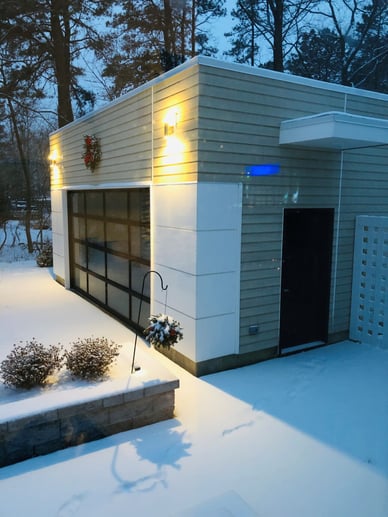
-
Tool checkup:
Make sure your snow shovels are free from cracks. Schedule an annual tune-up if you have a snowblower and make sure a gas container is filled and stored in a safe location.
-
Winterize outdoor faucets:
Remove all hoses or devices attached to outdoor spigots. Drain any water left behind in the pipes and turn off the water to the outdoor spigots. Don't forget to blow out in-ground sprinkler systems.
-
Outdoor furniture:
Wash upholstery and frames. Store & secure both furniture and cushions in a covered area free from moisture.
-
Clear any landscape debris and waste from the following areas:
-
HVAC Unit
-
Gas meters
-
Basement Windows
-
Dryer Exhaust Vent
*Cut back dead branches that can reach your roof or siding to avoid the possibility of scratching the home during high winds, as well as breaking under heavy snow and ice.
-
-
Firewood:
Store your firewood in a dry place at least 30 feet from your home to avoid a fire hazard.
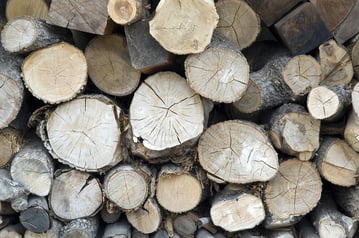
-
Visually inspect your roof:
Look for any missing or damaged shingles; consult a roofing professional if needed. Ensure that all gutters are clean and securely attached to the home.
Swimming pools and hot tubs:
Speak to a Pool and Spa professional about properly checking the chlorine/salt levels, winterizing filtration systems, lowering pool water, and securing covers.
*Bonus Tips- Outdoor lights-Ensure that exterior lighting (front, back, and garage) is functioning. Replace bulbs with LED options will surely save you money.
- Prevent pests. Inspect the perimeter of your home foundation for small cracks or openings where mice or other pests can tunnel in. Seal up any possible entrances to avoid outside intruders looking for a warm place to nest for the winter.
- Sidewalk and driveway. Use a de-icing product and sand to prevent slips and falls after shoveling.
Has Your Home Incurred Winter Damage?
You barely have enough time to keep up with work and your family, let alone complete DIY winter home repairs. Residential remodeling is our specialty. LICC, Inc's contracting services range from kitchen and bathroom remodeling to home additions as well as insurance repairs.
Did you have a pipe burst this winter? The Long Island Creative Contracting team will work seamlessly with your insurance company to not only repair damages but have your kitchen look better than before.
View our list of services and call today for your free "At-Home" or "Virtual Consultant".



